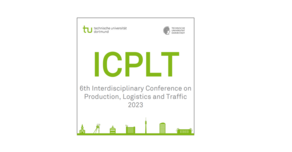Multi Carrier Dispatch Planning with Artificial Intelligence
- Current Projects
- Mathematical Optimization
Background
The shipping process in trade and manufacturing has significant economic and environmental impacts. Companies face the challenge of considering numerous factors when making shipping decisions, such as customers’ delivery date preferences, the capacities and conditions of transport service providers, vehicle utilization, and the resulting environmental footprint. These factors often conflict, as faster delivery typically involves higher costs and increased environmental impact.
The demand for sustainable and resilient shipping processes is also steadily increasing. While companies have traditionally focused on meeting delivery time windows and minimizing costs, reducing emissions and adapting to unforeseen events are becoming increasingly important. To meet these evolving requirements, it is essential to integrate all available information and data into the decision-making process.
However, the complexity of the data involved presents a significant challenge. The intricate interactions between various influencing factors make manual processing impractical in real-world scenarios. As a result, many companies still implement suboptimal shipping processes, leading to increased transport costs, reduced sustainability, and diminished resilience.
Methodological Approach
The project aims to enhance the decision-making foundation for shipping processes through the use of Artificial Intelligence (AI) and, subsequently, to enable improved shipping decisions. To achieve this, a two-phase approach will be employed. First, AI-driven forecasts will be generated to produce short- and medium-term prediction distributions for shipping volumes and estimated time of arrival (ETA). These robust forecasts will account for input data, models, and parameters uncertainties. Based on these predictions, mathematical optimization algorithms will be developed to minimize costs, consolidate shipments, and maximize sustainability and resilience.
Expected Outcomes
A primary goal of the project is to improve efficiency and reduce costs by enabling shipping decisions that significantly lower transport expenses. At the same time, sustainable logistics will be promoted by consolidating shipments and reducing transport movements to minimize the environmental footprint. Another key focus is enhancing resilience by enabling dynamic adjustments to fluctuations in order volumes, thereby strengthening the flexibility of logistics processes.
Contact: Prof. Dr.-Ing. Uwe Clausen, Patrick Buhle
Funding and partners







